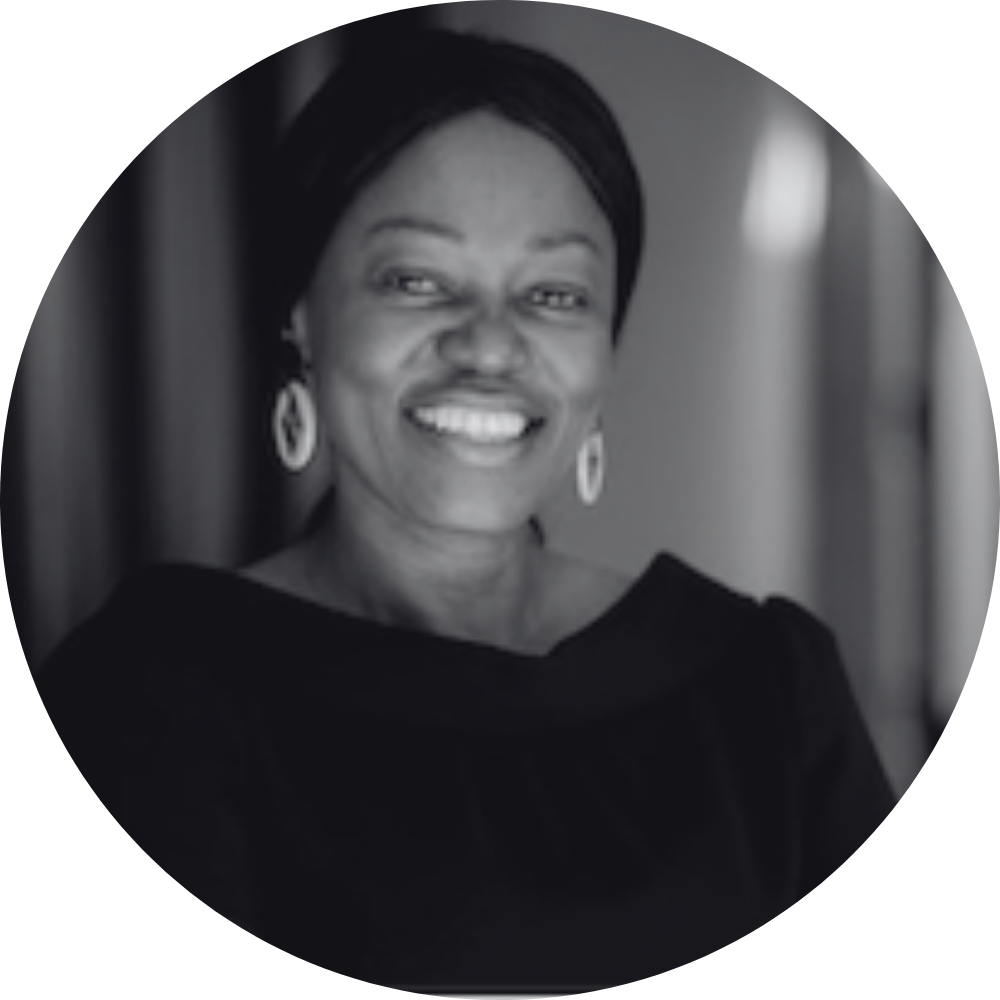The Trinity Challenge on Pandemic Preparedness and Response
The inaugural Trinity Challenge was a call to action for the best and brightest minds to contribute ideas and innovations, with a chance to win both funding and mentoring from world-renowned organisations.
What is the Trinity Challenge on Pandemic Preparedness and Response?
The inaugural Trinity Challenge was a call for data-driven solutions that answered the question:
“How can data and analytics be used to better identify, respond to, and recover from global health emergencies?”
It was launched by our Chair and Founder Dame Sally Davies at a time when the health, social and economic impacts of COVID-19 had exposed critical vulnerabilities around the world. Launching the Challenge, Dame Sally Davies said:
“There will be another COVID-19, and there is an opportunity for the international community to learn lessons now and prepare for the future. The Trinity Challenge is a recognition by business, academia and philanthropy of the need for new, breakthrough ideas and approaches to beat the next pandemic.
We need new ways of working, new partnerships, new ideas, and believe that together this strong and growing coalition can and will generate acts that protect and improve lives and livelihoods everywhere.”
The Challenge set a series of urgent questions to harness the potential of data and analytics to learn and share lessons from the great innovations made to combat COVID-19, and to build resilience against future pandemics and health emergencies.
The Challenge had three areas of focus:

Identification
We need to know where outbreaks are likely to occur and why, and to identify interventions to reduce risk and spill over.

Response
We need to know what measures are effective, and at the least societal and economic cost, to reduce transmission and spread.

Recovery
We need to know how to address the disproportionate health and economic impact of outbreaks and pandemics, particularly on vulnerable groups.
Winners
Grand Prize (£1.3 million)
PODD: Participatory One Health Disease Detection
Most new infectious diseases, like COVID-19 and Ebola, are the results of cross-over from human contact with animals. What if we knew when new diseases might be circulating among animals? Armed with a mobile app, PODD has empowered over 19,000 farmers across Thailand to be disease detectives and to document reports of sick animals. Expanding this network would make it the front-lines for future warning systems for emerging diseases among humans and livestock to enable rapid action to prevent the next pandemic.
Joint Second Prize (£1m each)
3.6 billion Complete Blood Count tests are done per year, with each test producing a vast number of unused data points. Blood Counts!, a network of experts across clinical, quantitative science and corporate enterprises, applies AI to analyse all data points and turns them into a broad surveillance network to detect infectious disease outbreaks without the need for any new instruments or reagents.
Joint Second Prize (£1m each)
The Sentinel Forecasting System for Infectious Disease Risk
West Africa has been a hotspot of new viral threats from animals, including Lassa fever (over half a million cases per year) and Ebola (11,000 deaths in recent outbreaks). The Sentinel Forecasting system will integrate real-time data on viruses circulating in animals, land use, past spill-over incidents, and other sources. Public health authorities in West Africa will use Sentinel to forecast and manage infectious disease risk and prevent spill-over of new diseases with targeted interventions.
Joint Third Prize (£480,000 each)
MedShr Insights and Early Warning System
Timely detection of disease outbreaks is a global challenge. With over 1.5m doctors across 195 countries connected through its peer-learning platform, MedShr is uniquely positioned to develop an early warning system for infectious and novel diseases by applying AI, Natural Language Processing (NLP), and social listening technology to its real world medical data – which can be expanded to ingest scientific research, electronic medical records and social media for an even stronger surveillance system in the future.
Joint Third Prize (£480,000 each)
Khushi Health: Data-Driven Response to COVID-19 in India
India leads the world in new COVID-19 cases with over 190,000+ new cases a day. Khushi Health equips Community Health Workers (CHWs) to serve citizens at high-risk for COVID-19 with a suite of digital solutions – including GIS dashboards for community-based surveillance, longitudinal referral systems, algorithms for CHW decision-support and automated patient engagement. Already serving over 14m beneficiaries, the group is looking to both deepen its digital toolkit and scale its services to enable more effective, timely, and targeted interventions for high-risk populations across India.
Joint Third Prize (£480,000 each)
DiSenDa: Disease Surveillance with Multi-Modal Senor Network & Data Analytics
What if we could detect outbreaks before they spiralled out of control to cost lives and livelihoods? A wireless sensor network, with patented sensor technologies, offers a surveillance solution that detects pathogens in air and water up to one week before cases present in humans. This low-cost, game-changing system can be deployed in vulnerable, underserved and remote communities with limited access to health services. Continuous and real-time data streaming, analysis and visualisation then allow health bodies in these communities to make critical life-saving decisions.
Joint Third Prize (£480,000 each)
Living Goods: Supporting Digitally Enabled CHWs to Strengthen Health Systems
The sharp focus on containing COVID-19, has meant second-order consequences that threaten to undo years of public health progress in Africa. Living Goods is working to ensure the continual provision of essential health services through disruptions and lockdowns, by elevating its digital performance management systems for Community Health Workers (CHWs) to be more proactive and even predictive. This cost-effective approach to digitising and enhancing the performance of CHW networks is improving health outcomes at the community level and can be scaled in other environments facing similar challenges.
Joint Third Prize (£480,000 each)
VaccineLedger: Ensure Quality and Safety of the Vaccines
The WHO estimates that one in three vaccines is wasted in supply chains; for COVID-19 alone, this would delay vaccination of nearly 3bn people. VaccineLedger has been working to revolutionise vaccine supply chains through a blockchain-based solution that tracks each vaccine vial, providing continuous visibility and transparency on vial conditions along its journey from a manufacturer to a beneficiary. Equipping health systems to efficiently distribute and maintain the safety and efficacy of vaccines, solves an important piece of the pandemic recovery puzzle.
The Trinity Challenge Judges
An independent panel of specialist judges representing a diverse set of expertise were responsible for reviewing applications and selecting Finalists and Winners.

Co-Chair
MARK DYBUL
Professor of Medicine, Chief Strategy Officer,
Center for Global Health Practice and
Impact, Georgetown University Medical Center

Co-Chair
TSITSI MASIYIWA
Founder and Co-Chair, Higherlife Foundation

Erik Berglof
Chief Economist, Asian Infrastructure Investment Bank

Cristina Bitar
Senior Partner, Azerta

Yves Boussemart
Chief Technology Officer, Xerxes Global

Professor Tan Chorh Chuan
Executive Director & Chief Health Scientist, MOH Office for Healthcare Transformation & Ministry of Health Singapore

Roopa Dhatt
Executive Director, Women in Global Health

Dr. Patricia J. Garcia
Professor, Universidad Peruana Cayetano Heredia

Dylan George
Vice President, In-Q-Tel

Githinji Gitahi
Group Chief Executive Officer, Amref Health Africa

Swati Gupta
Vice President and Head of Emeging Infectioius Diseases and Scientific Strategy, IAVI

Mainga Hamaluba
Dr, KEMRI-Wellcome Research Programme

Sajit Joseph
Chief Innovation Officer, American Red Cross

Jayasree K. Iyer
Executive Director, Access to Medicine Foundation

Jia Li
Co-Founder, DawnLight

Jacqueline Miller
Senior Vice President, Infectious Diseases, Moderna, Inc

Henry Mwanyika
Regional Director, Africa, PATH

Dr. Gloria Seruwagi
Director, Centre for Health and Social Economic Improvement (CHASE-i), Makerere University

Sheetal Silal
Professor, Director, Modelling and Simulation Hub, Africa (MASHA), University of Cape Town

Amandeep Singh Gill
Project Director/CEO, International Digital Health and AI Research Collaborative (I-DAIR)

Renu Swarup
Secretary, Department of Biotechnology (DBT), Ministry of Science and Technology, Government of India

Karel Vredenburg
Director, IBM Global Design Leadership, Culture, & External Engagement, IBM
Our Challenge Members
The Trinity Challenge on Pandemic Preparedness and Response was supported by some of the world’s leading private, academic, and civil society sector organisations. To see our current and former Members, visit our Members page.
